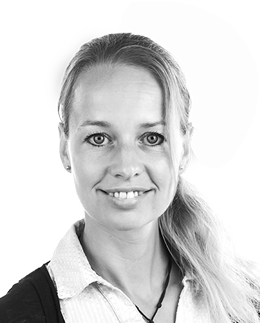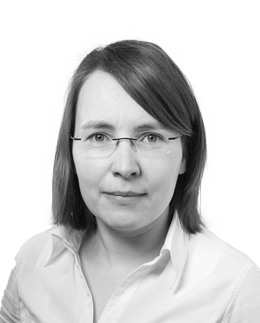Mitarbeiter*innen
Leider konnte für diese Suchkombination kein Ergebnis gefunden werden

Ramona Julia Richter
0511 450670-120
A
B

Sodeh Baniasadi
0511 450670-408

Claudia Begemann
0511 450670-165

Dr. Sophie Biesenbender (geb. Schmitt)
SophieBiesenbender
030 2064177-37

Judith Block
0511 450670-368

Clemens Blümel
Bluemel
030 2064177-31

Dr. Göde Both
030 2064177-27

Ennio Brandt
030 2064177-23

Dr. David Broneske
0511 450670-454

Steffen Bruckner
0511 450670-924

Prof. Dr. Sandra Buchholz
0511 450670-176

Daniel Buck
0511 450670-417
C

Dr. Johann Carstensen
0511 450670-914

Joshua Claaßen
0511 450670-407

Ruth Cordes
0511 450670-561

Fine Cordua
0511 450670-134

Roberto Cruz Romero
030 2064177-22
D

Gunther Dahm
0511 450670-111

Dr. Andreas Daniel
0511 450670-402

Esther-Magdalena de Haan
0511 450670-341

Franziska Debes
0511 450670-409

Carsten Deuse
0511 450670-353

Katharina Diehl
0511 450670-534

Paul Donner
030 2064177-21

Frank Dölle
0511 450670-349
E

Prof. Dr. Nikolas Eisentraut
0511 450670-369

Sebastian Elvers
0511 450670-516

Dr. Thorsten Euler
0511 450670-405
F

Gregor Fabian
0511 450670-133

Dr. Isabelle Fiedler
0511 450670-190

Christiane Fischer
0511 450670-676

Dr. Barbara Franke
0511 450670-197

Dr. Walburga Katharina Freitag
0511 450670-392

Antje Friedrich
0511 450670-535

Marc Friese
0511 450670-492

Irina Friesen
0511 450670-506

Martin Fuchs
0511 450670-491

Inessa Fuge
0511 450670-471
G

Anna Gerchen
0511 450670-331

Frederike Gerdes
0511 450670-140

Dr. Anja Gottburgsen
0511 450670-912

Dr. Michael Grüttner
0511 450670-116

Judith Grützmacher
0511 450670-498

Dr. Filiz Gülal
0511 450670-939

Dr. Christoph Gwosć
Gwosc
0511 450670-366
H

Andrea Haberstroh
0511 450670-523

Friederike Harenberg
0511 450670-152

Judith Hartstein
030 2064177-41

Dr. Kristina Hauschildt
0511 450670-193

Christophe Heger
030 2064177-57

Daniel Hein
0511 450670-153

Christine Heisterberg
0511 450670-495

Dr. Felicitas Heßelmann
Hesselmann
030 2064177-14

Ute Hoffstätter
0511 450670-404

Anna-Sabrina Holze
0511 450670-532

Amber Hoots
0511 450670-505

Prof. Dr. Jan Karem Höhne
0511 450670-458

Dirk Huke
0511 450670-447

Dr. Björn Huß
Huss
0511 450670-181
I

Feyza Ibili
0511 450670-581

Dilek İkiz-Akıncı
DilekIkiz-Akinci
0511 450670-416

Dr. Susanne In der Smitten
0511 450670-350
J

Verena Jahn
0511 450670-143

Violetta Jaimes del Rio
0511 450670-527

Dr. Steffen Jaksztat
0511 450670-144

Melike Janßen
030 2064177-60

Dr. Susanne Jaudzims
0511 450670-377

Dr. Vanessa Katharina Jänsch
0511 450670-136

Peter Jenkner
0511 450670-352

Christine John
0511 450670-411

Prof. Dr. Monika Jungbauer-Gans
0511 450670-910

Peter Juzak
0511 450670-549
K

Alice Kawczynski
0511 450670-559

Dr. Christian Kerst
0511 450670-141

Prof. Dr. Bernd Kleimann
0511 450670-363

Dr. Daniel Klein
0511 450670-406

Helena Kopp
0511 450670-487

Stella Maria Köchling
0511 450670-379

Dr. Nancy Kracke
0511 450670-137
L

Rachid Laajouzi
0511 450670-448

Leena Lahse
0511 450670 113

Gesche Landers
0511 450670-540

Astrid Lange
0511 450670-138

Max Leckert
030 2064177-52

Nora Lorenz
0511 450670-162

Dr. Andrey Lovakov
030 2064177-20

Carolin Luksche
0511 450670-356
M

Nikhil Mandya Parashivamurthy
0511 450670-0

Christian Meisner
0511 450670-425

Dr. Hanna Mentges
0511 450670-159

Dr. Torger Möller
0511 450670-327

Baizil Mulakkampilly Devassy
0511 450670-0

Marie Lena Muschik
0511 450670-161

Dr. Kai Mühleck
0511 450670-156

Peter Müßig
0511 450670-493
N

Dr. Nicolai Netz
0511 450670-171

Bernd Neumann
0511 450670-565

Dr. Julia Niemann-Lenz
0511 450670-432

David Nika
0511 450670-157

Petra Nölle
0511 450670-511
O

Dr. Axel Oberschelp
0511 450670-348

Tina Oestreich
0511 450670-106

Dr. David Ohlendorf
0511 450670-118

Jan-Christoph Ohnesorge
0511 450670 xxx

Dr. Jessica Ordemann
0511 450670-128

Mara Osterburg
0511 450670-129

Dr. Matteo Ottaviani
030 2064177-46
P

Yasemin Peker
030 2064177-12

Dr. Frauke Peter
0511 450670-126

Dr. Sabrina Petersohn
030 2064177-33

Karen Philipp
0511 450670-923
Q

Heiko Quast
0511 450670-160
R
S

Parisa Safikhani
0511 450670-468

Dr. Sandra Sanders
0511 450670-311

Melanie Scharkowsky
0511 450670-504

Tatjana Schepel
0511 450670-502

Nikolai Schmarbeck
030 2064177-39

Marion Schmidt
030 2064177-32

Heidrun Schneider
0511 450670-155

Alexander Schniedermann
030 2064177-13

Theresa Schommer
0511 450670-131

Ulrike Schwabe
0511 450670-123

Thomas Simpson
0511 450670-515

Viktor Skladovs
0511 450670-429

Astrid Sohn
030 2064177-42

Fritz Sommerwerk
0511 450670-514

Dr. Heike Spangenberg
0511 450670-151

Dr. Guido Speiser
030 2064177-24

Dr. Stephan Stahlschmidt
030 2064177-18

Dr. Julia Steinkühler
0511 450670-139

Dr. Henrike Steins
0511 450670-419

Dr. Karsten Stephan
0511 450670-415

Dr. Dimity Stephen
030 2064177-26

Elena Sterzer
0511 450670-570
T

Anastasiia Tcypina
030 2064177-0

Carola Teichmann
0511 450670-146

Christoph Thiedig
030 2064177-25

Marcel Thomann
0511 450670-325

Dr. Fabian Trennt
0511 450670-148
U

Vladimir Utte
0511 450670-455
V

Dr. Theresa Velden
030 2064177-51

Piero Donato Vitullo
0511 450670-515

Inna Vogel
0511 450670-544

Caroline von Roeder
0511 450670-513

Elke von Werder
0511 450670-512

Dr. Eva Maria Vögtle
0511 450670-359

Daniel Völk
0511 450670-355
W

Rafael Warkotsch
0511 450670-108

Dr. Anne Weber
0511 450670-488

Dr. Antje Wegner
030 2064177-48

Jonathan Williams
0511 450670-326

Janka Willige
0511 450670-154

Gert Winkelmann
0511 450670-351

Eduard Wolf
0511 450670-508
Z

Parmida Zarei
0511 450670-477




